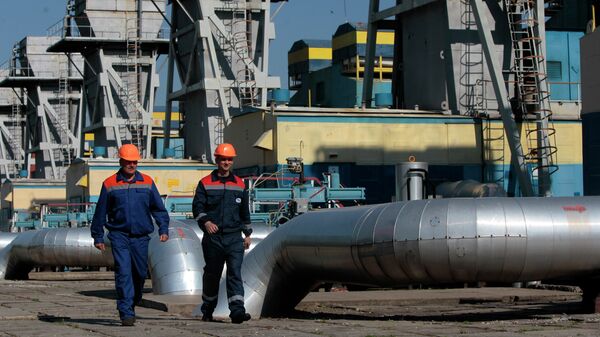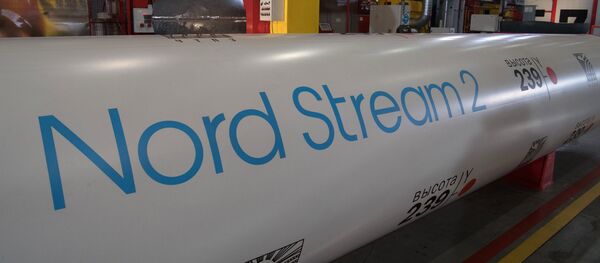Earlier, the Antimonopoly Committee of Ukraine (AMCU) warned that it will seize Gazprom's property and assets in Ukraine. As Gazprom has no other physical assets in the country, this only means the confiscation of the Russian gas from the transit pipeline, the Russian newspaper Vzglyad wrote.
"This is the most terrible scenario," the head of Russia's National Energy Security Fund, Konstantin Simonov, told the newspaper. "In 2009, Ukraine stole gas for its own needs, and now it will seize it officially. Ukraine will disrupt the transit and admit that," he added.
Gazprom refused to pay the fine and appealed the decision in Ukrainian courts, but without success. The company filed another appeal a month ago, which has not yet been considered.
According to political expert Maxim Zharov, Gazprom has good legal arguments to counter Kiev's actions.
"I don't think that this situation will somehow affect Gazprom, because it has good legal arguments to counter such steps. So, I don't think that there will be any difficulties in protecting Gazprom's interests in front of the Ukrainian authorities," he said.
According to Zharov, Kiev's actions will negatively affect the investment climate in Ukraine, not the Russian energy company.
"The Ukrainian authorities seek to eliminate the presence of Russian companies in the Ukrainian market. <…> I think that this step will seriously worsen the investment climate in the Ukrainian market," the expert concluded.
Nord Stream 2 will comprise a twin 1,200 km pipeline with a capacity of 55 billion cubic meters (bcm) of gas. It will run underneath the Baltic Sea from the Russian town of Vyborg near the Finnish border to Lubmin, near Greifswald in Germany.



